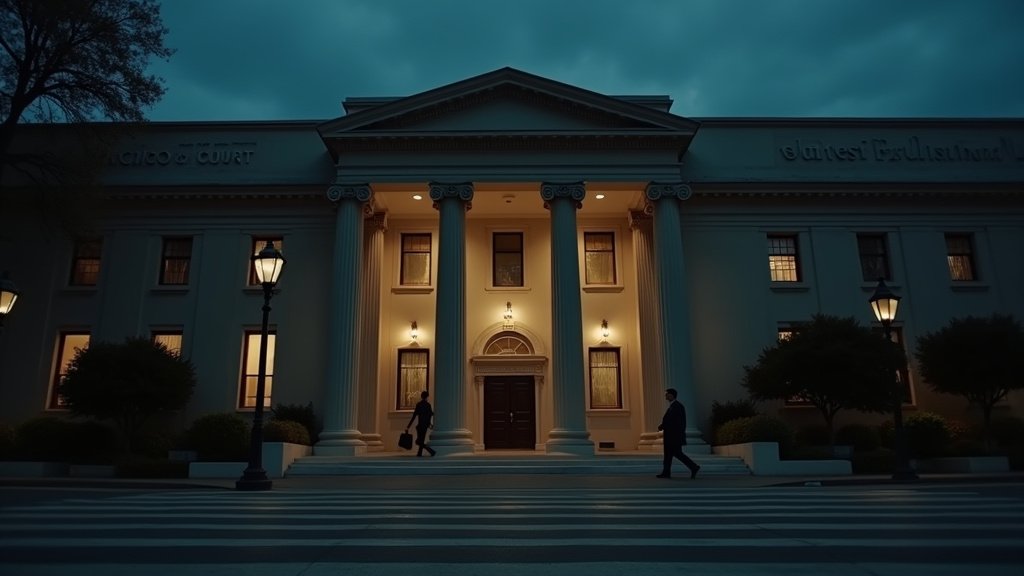In a significant legal victory for the state of Oregon and the city of Portland, a federal judge has permanently blocked President Donald Trump’s administration from deploying National Guard troops to the city. U.S. District Judge Karin Immergut issued a final ruling on November 7, 2025, concluding that the Trump administration “did not have a lawful basis to federalize the National Guard” and that the National Guard deployment exceeded the president’s constitutional authority. This landmark decision concerning **National Guard deployment** has far-reaching implications, solidifying an Oregon lawsuit victory and setting a precedent against the Trump administration unlawful actions.
Legal Basis for the National Guard Deployment Ruling
The core of Judge Immergut’s decision, detailed in a 106-page opinion, centered on the interpretation of federal law, specifically Title 10, Section 12406 of the U.S. Code. This statute permits the president to federalize National Guard troops under specific conditions, such as a rebellion or a significant impediment to executing federal laws. However, the judge found that the evidence presented did not meet this threshold for **National Guard deployment**.
In her ruling, Immergut stated that the protests outside the U.S. Immigration and Customs Enforcement (ICE) building in Portland, while sometimes violent, were “predominantly peaceful” since mid-June 2025, with only “isolated and sporadic instances of relatively low-level violence”. She rejected the administration’s claim that the situation constituted a rebellion or that federal law enforcement was unable to function, finding that any interference with federal officers was minimal and did not significantly impede the execution of immigration laws. Furthermore, the judge determined that the federalization of the National Guard violated the Tenth Amendment, which reserves powers not delegated to the federal government to the states, impacting the constitutional authority for **National Guard deployment**.
Background of the National Guard Deployment Dispute
The legal battle began in late September 2025 when President Trump announced on social media his intention to deploy federal troops to Portland, describing the city as “war-ravaged” and “under siege”. This announcement followed months of protests in Oregon’s largest city, stemming from the murder of George Floyd and broader concerns about racial injustice and police brutality. While federal agents were deployed to protect federal property, state and local officials, including Oregon Governor Tina Kotek and Portland Mayor Keith Wilson, vehemently opposed the presence of federalized troops, arguing they were unnecessary and exacerbated tensions. The proposed **National Guard deployment** was a key point of contention, highlighting concerns about the Trump administration unlawful approach.
In response to the deployment announcement, Oregon and the city of Portland, later joined by California, filed an Oregon lawsuit arguing that the Trump administration was overstepping its authority. Judge Immergut had previously issued several temporary restraining orders blocking the deployment, but the administration attempted to circumvent these orders, including by attempting to deploy California National Guard members after Oregon’s Guard was initially blocked. The case culminated in a three-day bench trial where both sides presented evidence and testimony regarding the **National Guard deployment**.
Implications of the National Guard Deployment Ruling
Judge Immergut’s final ruling, a crucial Judge Immergut decision, is a significant setback for the Trump administration’s approach to managing civil unrest and marks the fourth time she has blocked the **National Guard deployment** to Portland. While the ruling permanently bars federalization and deployment of National Guard members in Oregon in response to the specific protests, Immergut noted that it does not preclude future deployments if conditions on the ground genuinely justify such intervention. This ruling concerning **National Guard deployment** sets a crucial precedent, underscoring state sovereignty limits.
Both Oregon Governor Tina Kotek and California Attorney General Rob Bonta hailed the decision as a “victory for the rule of law” and a rejection of the president’s “militarized vision for America’s future”. The White House, however, issued a statement indicating it would likely appeal the ruling, maintaining that President Trump had “exercised his lawful authority to protect federal officers and assets” amidst “ongoing violent riots and lawlessness”. The case highlights the ongoing tension between federal authority and state sovereignty, particularly concerning the use of the National Guard in domestic situations, and the parameters of constitutional authority for **National Guard deployment**.
News of this judicial decision has resonated nationally, with similar legal challenges arising in other cities where the Trump administration sought to deploy federal forces. The Portland protests ruling underscores the judiciary’s role in scrutinizing the executive branch’s use of power and its adherence to constitutional limits, especially in times of civil unrest. This significant legal news from Oregon sets a precedent for future disputes over presidential authority and the deployment of military personnel within the United States, particularly regarding **National Guard deployment**. The Judge Immergut decision confirms the limits of Federal troop deployment without proper justification.




